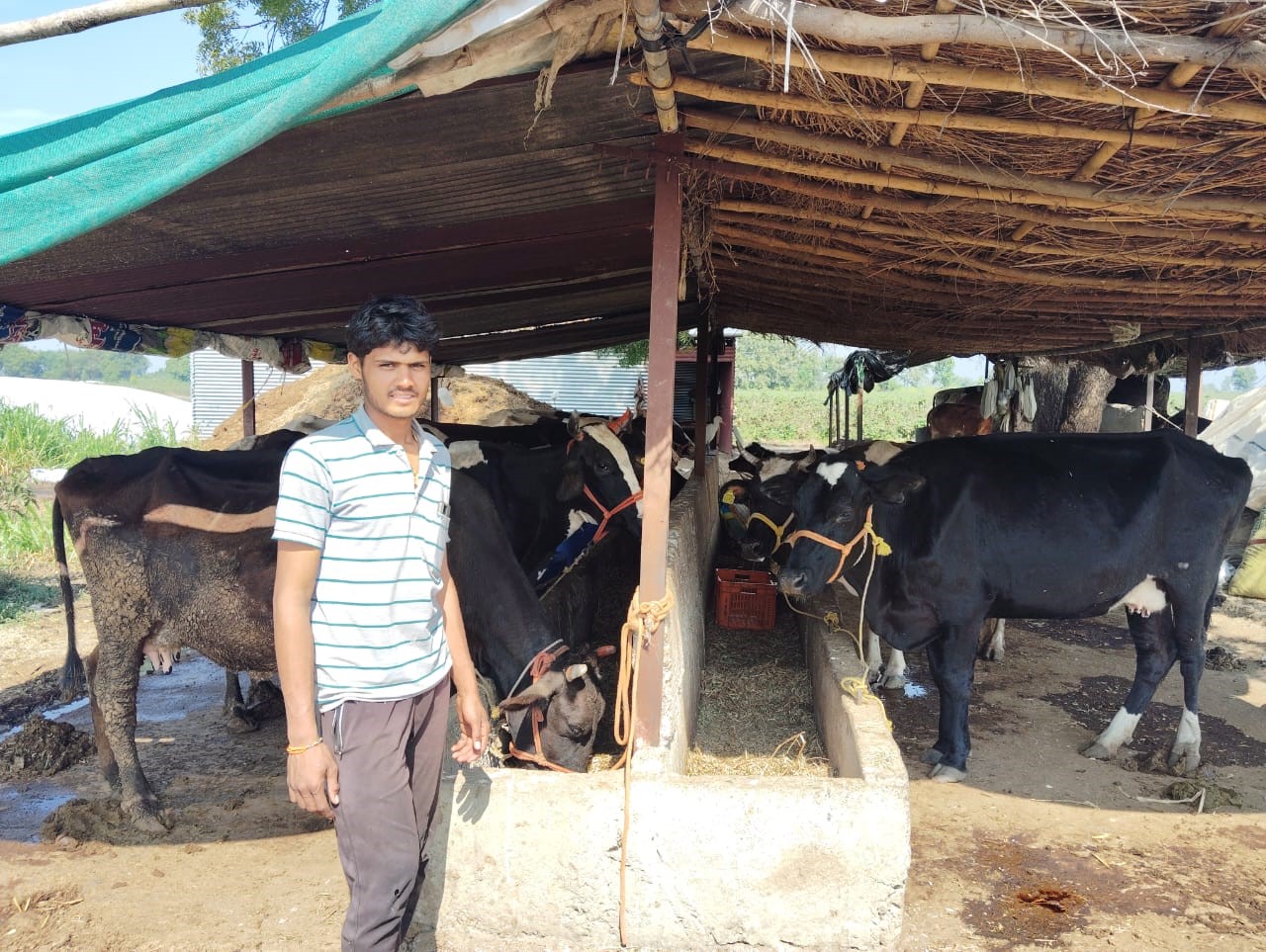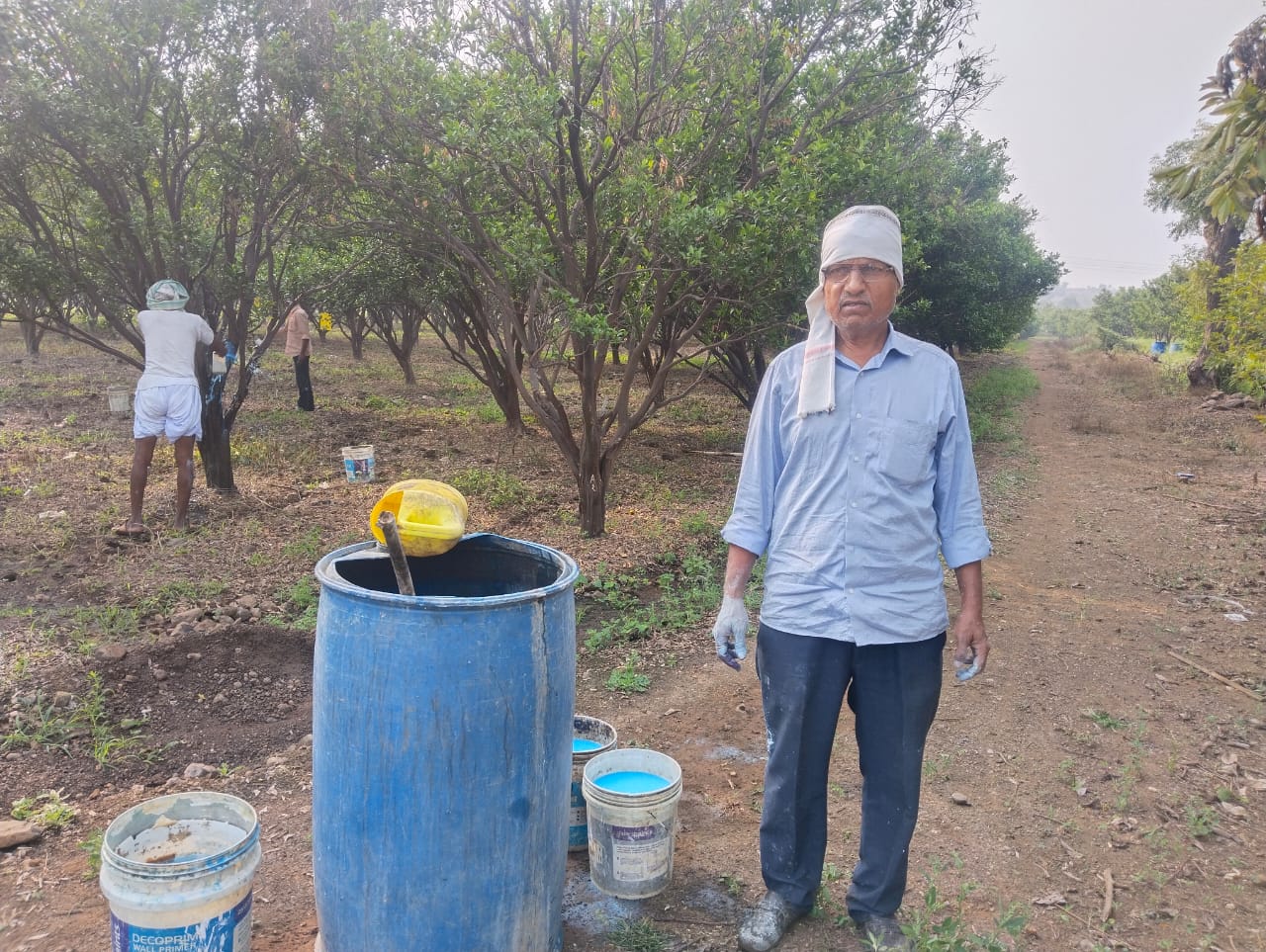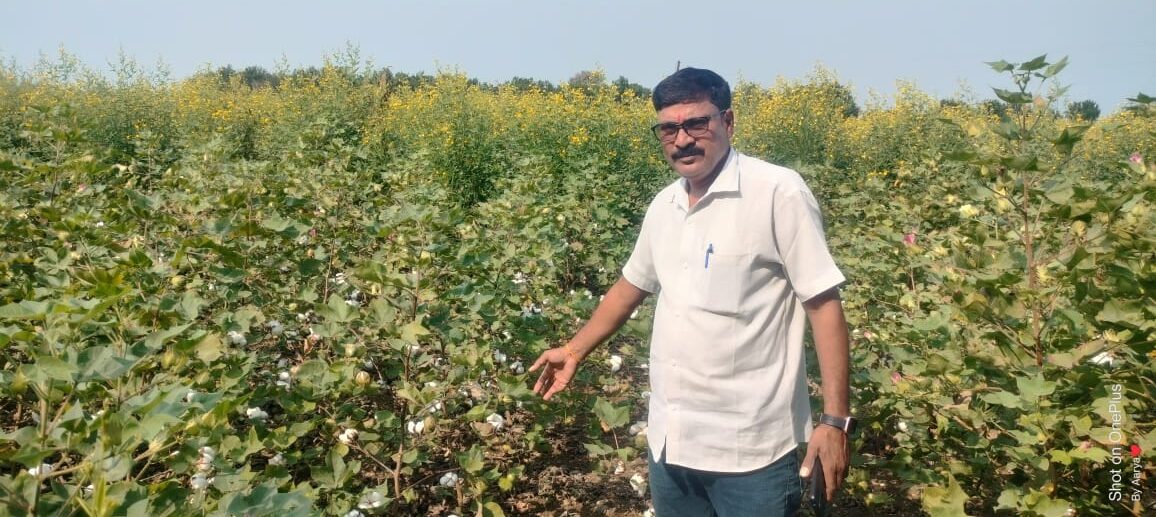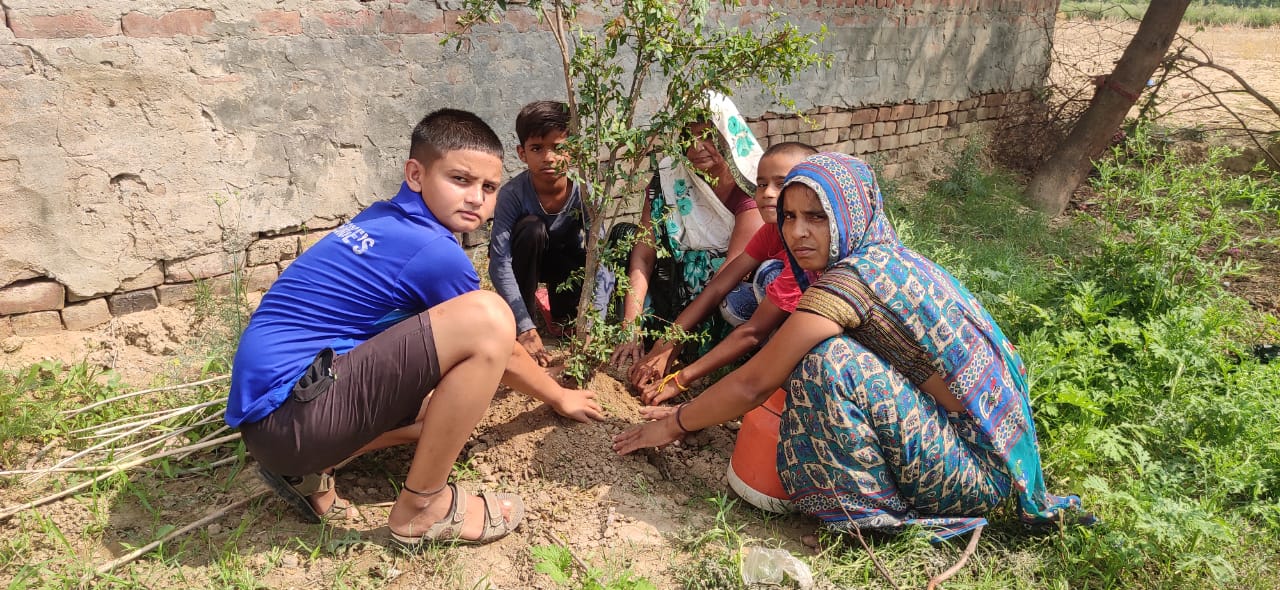Agriculture in India is at crossroads. Regenerative agriculture can offer social, economic, and environmental benefits to small-scale farmers.
The global population is expected to reach the 10 billion-mark by around 2050. While the demand for food is ever-increasing, the intensive farming practices (in a bid to grow more) have had a devastating effect on soil, leading to soil erosion and degradation.
In the long-term, shrinking cultivable land can put global food security at risk. Coupled with the climate change impact, agriculture in India, as well as globally, is at crossroads.
Regenerative agriculture holds the rare potential to offer social, economic, and environmental benefits to everyone in the farm value chain, including the small-scale farmer. It is a way of farming to build and improve soil fertility, while sequestering and storing atmospheric CO2, increasing on-farm diversity, and improving water and energy management.
“One of the key focus areas of regenerative agriculture is soil health. By implementing practices such as cover cropping, straw mulching and crop rotation, farmers can improve soil structure, increase organic matter content, and enhance the soil’s ability to retain water and nutrients,” explains Dr Suresh Motwani, General Manager, Solidaridad. Solidaridad is an international civil society organization that works with small farmers, local authorities, private sector and research institutes for improved food production, a safer workplace, better access to clean water and a better income.
For farmers adopting regenerative agriculture, benefits range from stable yield, reduction in input costs (think fertilizers and pesticides) to improved soil biodiversity, which in turn can improve retention of water in the soil.
Tasting Success with Straw Mulching
Gopal Patidar, a 32-year-old farmer in Shajapur district of Madhya Pradesh, swears by straw mulching. A lead farmer in the Smart Agri Project implemented by Solidaridad across 10 states of India, Gopal owns a five-hectare land in Tilawad Govind village. He grows soybean during the Kharif season and wheat during Rabi besides some seasonal vegetables.
A follower of sustainable agricultural practices, Gopal was not aware of straw mulching and its benefits. He first heard about it at a three-day training programme on agribusiness at Jawaharlal Nehru Krishi Vishwavidyalaya in Jabalpur, Madhya Pradesh.
Organic straw mulching is a farming technique where straw is spread over the soil surface to protect it from erosion, conserve moisture, and check weed growth. For a hot and dry district like Shajapur, straw mulching is particularly helpful for temperature moderation. Benefits of straw mulching include:
- Weed control: A thick layer of straw checks weed growth, thereby reducing the need for herbicides and manual weeding.
- Soil protection: Straw mulch protects the soil from erosion caused by wind and water.
- Moisture retention: Mulching with straw reduces water loss from evaporation and can help keep the soil moist.
- Temperature moderation: Straw mulch can help regulate soil temperature, keeping it cooler in hot weather and warmer when it is cold.
- Nutrient retention: As the straw decomposes, it releases nutrients into the soil, improving its fertility.
“Availability of water for vegetable crop has always been a big challenge for the farmers in my area as this region receives little rainfall. It is difficult and cost-intensive to improve yield when your soil is dry,” says Gopal. “During the training programme I learnt that straw mulching is a potential solution as it helps with moisture retention, which in turn can reduce water consumption by the crop.”
Gopal shared his interest in straw mulching with the Solidaridad team who then helped him prepare his land. He started the practice on one-acre land where he grows tomato.
Over time, Gopal noticed several positive outcomes. With the mulching improving the moisture levels of the soil, the irrigation cycles for the crop reduced, thereby bringing down the irrigation cost. Unlike plastic mulching, which would have cost Gopal Rs 7000-Rs 8000, straw mulching cost him nothing. Further, the decomposed straw added to the nutrient profile of the soil.
Finally, there was a marked improvement in the quality of tomatoes (in size and taste), fetching Gopal a better price in the market. He had a bumper crop and sold tomatoes worth Rs 1.75 lakh during the tomato season, with a net profit of Rs 1.50 lakh.
After tasting success with regenerative agriculture in tomato, Gopal has decided to follow the practice for his chilli crop this season.
“This time I could save around 60 per cent water (consumption) because of straw mulching. At the same time, I didn’t have to spend much on weed control and micronutrient supplements, and I got an unexpected harvest this year. My family is very happy to see us thrive in agriculture,” says a beaming Gopal.
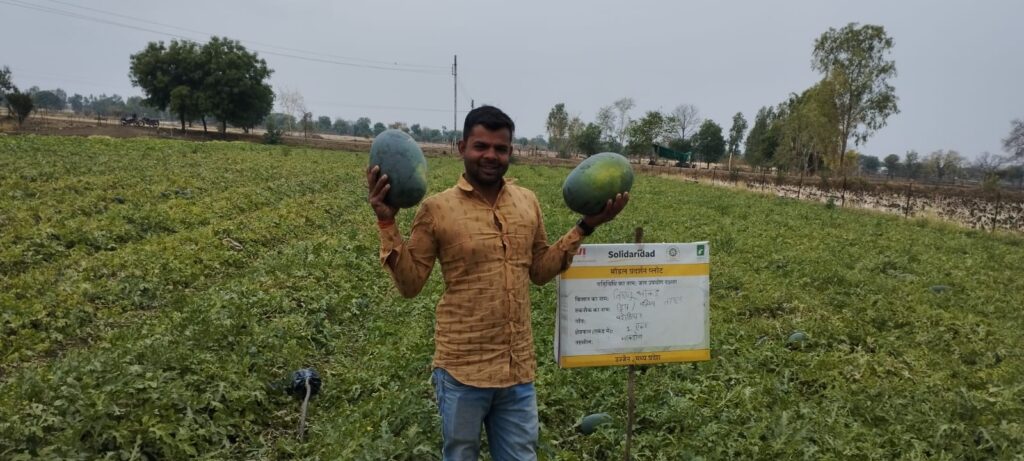
Effective Water Management through Drip Irrigation
Like Gopal, Vishnu Dhakad of Ujjain district has also witnessed the transformative impact of regenerative agriculture on his livelihood. Regenerative agriculture focuses on better water management through water efficiency, and for Vishnu drip irrigation, in particular, turned out to be a winning practice.
Vishnu grows soybean during Kharif and wheat and onion during Rabi season on his two-hectare land in Barothiya village. He would leave his farm unsown during the summer season. Team Solidaridad advised him to grow watermelon during summers and suggested drip irrigation for the crop because of its ability to provide targeted water supply directly to the root zone. Watermelons have specific water requirements, and drip irrigation helps meet those while conserving water and promoting optimal plant growth.
Initially, Vishnu was hesitant about growing the crop because the region receives less rainfall. With the help of Solidaridad, a drip irrigation system was installed on his farm under the Smart Agri project.
He planted watermelon on one-bigha land (around quarter of a hectare). The controlled application of water and nutrients directly to the plant roots through drip irrigation helped maintain optimal soil moisture and nutrient levels, resulting in healthier crop. He also saw a 60 per cent drop in water usage due to water efficiency as well as a reduction in fertilizer use. He harvested 150 quintals of watermelon from the one-bigha land, and earned Rs 1.20 lakh. He was able to sell higher-quality produce at better prices, leading to greater profits and financial stability for his family of three.
The field team of Solidaridad provided him regular technical support on good practices like spacing between the seeds, irrigation scheduling, and monitoring soil moisture to ensure optimal water management.
“I never knew that watermelon could bring in good profits in my region. I am overwhelmed to see the results of drip irrigation. I will continue this practice now,” says Vishnu, who has become an advocate for drip irrigation among fellow farmers and shares his experience at the farmer field school, encouraging others to adopt this water-efficient technology.
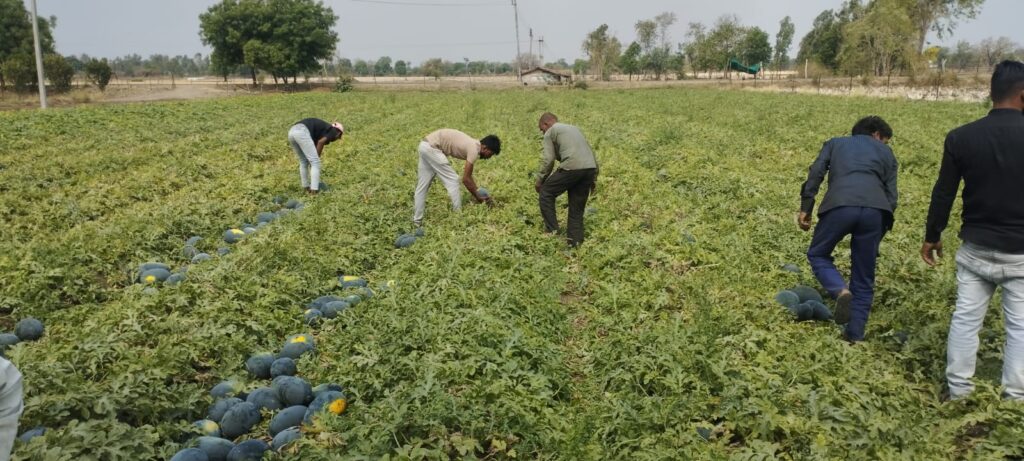
In April, Solidaridad laid the foundation for the Nico Roozen International Centre of Excellence for Regenerative Agriculture in Sehore, Madhya Pradesh. Named after the founder and honorary president of Solidaridad Network, Dr Nico Roozen, the centre will provide training on regenerative agricultural practices that are climate-smart, improve soil biodiversity as well as farmer livelihoods.
During the foundation laying ceremony, 125 gram panchayat sarpanch joined hands with Solidaridad and took a pledge to achieve the Sustainable Development Goals by adopting regenerative farming practices.
“This Centre will support more farmers to learn about and practice regenerative farming. By adopting regenerative practices, farmers can play a vital role in building a more sustainable future for agriculture and the planet,” says Dr Suresh Motwani.


